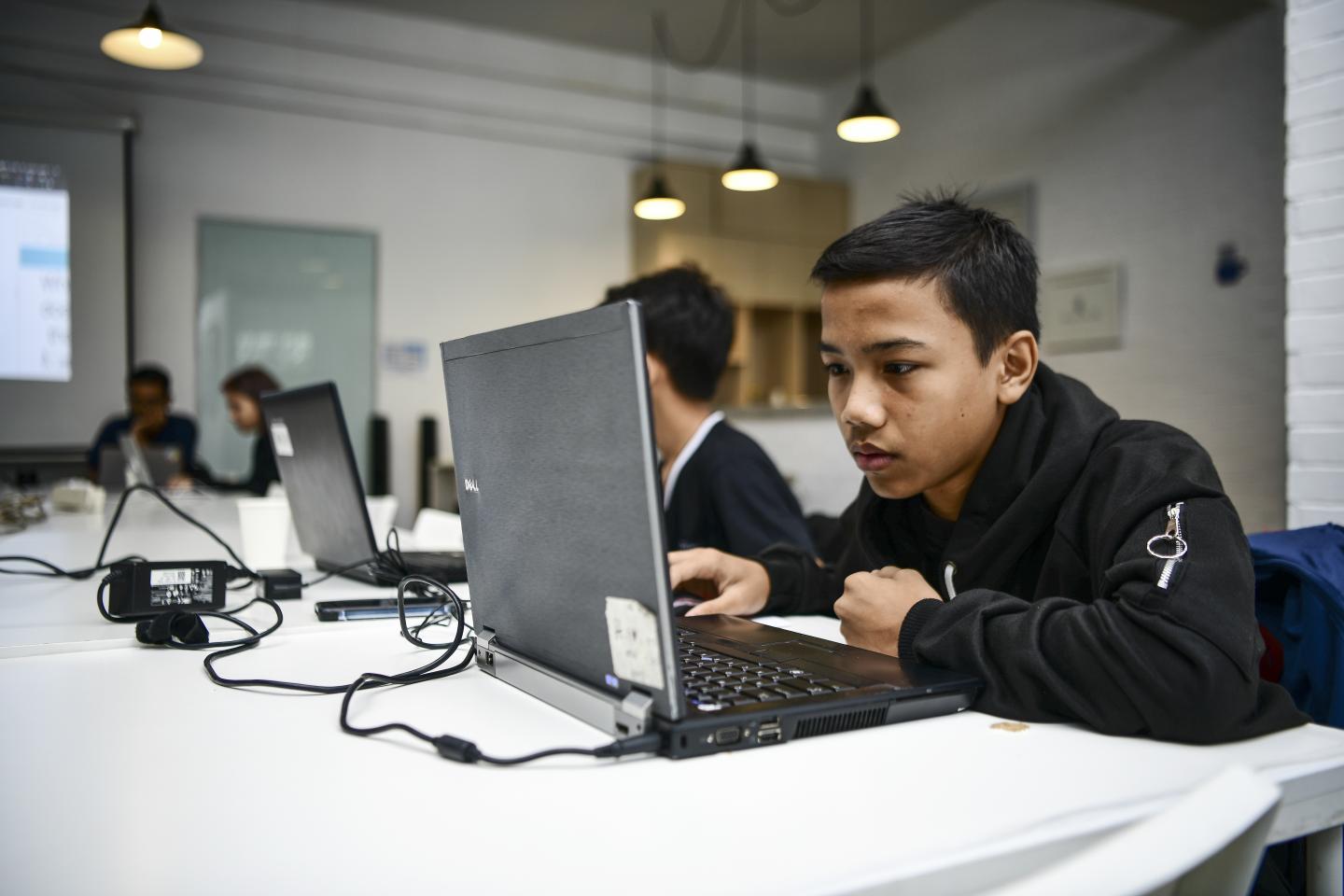
The World Organization for Early Childhood Education (OMEP) organized a side event during the 59th Commission for Social Development (CSocD59) on "Can a “mouse” transform the lives of the youngest uprooted children? ICT, forcibly displaced families and early childhood interventions" in collaboration with the Federation of American Women’s Clubs Overseas (FAWCO), NGO Committee on Migration, the Early Childhood Peace Consortium (ECPC).
Speakers:
- Danielle de la Fuente – Founder and Executive Director of Amal Alliance.
- Niels Peter Rygaard – Co-founder and CEO Fairstart Foundation and APA 2020 Award for International Humanitarian Work.
- Isabel Granada Garces – Senior Specialist, Migration Unit Social Sector, Inter-American Development Bank.
- Aaron Meyerson – Deputy Chief Technology Officer for Broadband, CTO InnovationNYC.
Moderator: Charlotte Jenner – UNHCR, Communications and Reporting Officer.
Number of participants: 85 participants attended.
Permanent Missions represented: Hungary, Russia.
Noted attendees: Sesame Street Workshop, SOS Children’s Villages, and Unicef. World-wide stakeholder groups including Faith Based Organizations, Academia, NGO’s, Teachers, Non or Profit Educational Organizations, Educational Consultants, International Federation for Social Work (IFSW, IASSW), American Psychological Association, & ECPAT.
Objectives of Event: Immigrant children and families, including forcibly displaced, migrant, and new residents, face a multiplicity of safe settlement challenges. The recent pandemic has further reduced educational and social opportunities, including social interactions for the youngest children and their parents. This event illustrates innovative ICT programs which have successfully reached children world-wide to improve educational and social opportunities.
Key Messages:
Global
- Digital technology for educators, abandoned and orphaned children, and parents have been fine-tuned to linguistics and dialectic in all aspects to local contexts.
International
- Creative and innovative digital programs, both on and off-line and in numerous languages, have been implemented to provide SEL and psychosocial support to forcibly displaced children.
- Positive outcome on well-being was expressed, reminding us of many children's intrinsic resilience.
Regional
- The lack of connectivity is one of the multiple marginalizing effects of the pandemic in communities primarily comprised of immigrant and undocumented populations from multiple ethnocultural and linguistic backgrounds.
- Infrastructure improvement and connectivity in collaboration with the private sector at no loss or low-cost to the most vulnerable neighborhoods and facilities is critical.
Recommendations:
Invest - prioritize investing in young children’s present and future well-being.
- Make governments aware of the increased risk of developmental, educational, physical, and mental health challenges of abandoned children, immigrant children ages 0-8, and their parents.
- UN Member States should create and entrust specific ministries to support and implement culturally and contextually sensitive and responsive digital ECD programs for children and their caregivers.
- Government sanctioned and funded connectivity to all, regardless of migration and socio-economic status, to end education and economic poverty
- Multi-year funding, so programs do not stop prematurely.
Collaborate - encourage international, national, local interagency cooperation.
- Collaborate with governments facilitating program permits.
- Create and provide protective measures to ensure that the internet ecosystem is used ethically and accounts for effectiveness, efficiency, security, and privacy considerations.
- Considering the SDGs, the achievement of the overall goal to “Leave No One Behind” can be met by leaving no one off-line.
 Welcome to the United Nations
Welcome to the United Nations